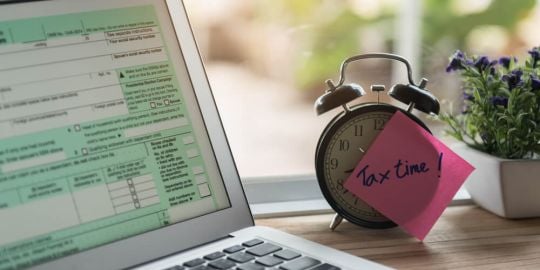Hi,
When you are going to live abroad, you may have a lot of questions. Hence to facilitate you in this process, we are inviting expats to share their top 5 tips with regards to settling and living in Nepal.
What recommendations would you give soon-to-be expats in Nepal?
How should they prepare efficiently for their expatriation project and settling in?
Please share with us your best advice for a successful expatriation in Nepal!
Thank you in advance 
Top 5 tips to live in Nepal
Hi, I would start with three basic things:
1) visit Nepal for longer time before deciding to move.
If you come just for few days of trekking and visiting with everything arranged in advance, Nepal may seem as a perfect, problem free country where everybody smiles all the time. But living here has its challenges and it is good to have a balanced idea of the country before you move here permanently. Make sure to check anything that may affect your health - average weather throughout the year (it gets very hot and humid in summer), air pollution, available food etc.
2) check visa options
Unfortunately Nepal doesn't make it easy for foreigners who want to live here longterm. Check if you are eligible for some type of longterm visa and prepare all necessary documents for the application process.
3) connect with other expats and read their tips and experiences
There are expats on this forum who have lived in Nepal for years. They can give you valuable information.
Cost of living in nepal can be higher than one might expect. For example taxis in KTM will not carry a foreigner for no less than $2.50 for any short trip ( after bargaining from an initial fare of $4.00 ).
Western goods and commodities are overpriced since they cater to foreigners ( and often the quality is dubious ). Expect to pay $1.50 for a loaf of bread or even $0.80 for a bun. Imported milk costs $4.00 per liter - local milk is much cheaper but needs to boiled before use - basically all items are imported and thus carry transport cost and import duties.
Indian meds ( the most widely available ) cost double once they reach nepal.
Proper Healthcare is a tough nut to crack esp. Outside KTM.
Lack of General Hygienic standards and pollution are something one has to live with. In the long term expect complaining from some sort of discomfort - eyes, skin, lungs irritation etc. Are common. For example most laundries hand wash / soak clothes in cold water with little or no soap -antiseptic is unheard of -
expect to haggle every single item you buy; from a bottle of water to oranges since they'll always hike the price - and its all justified by their perception that westerners are loaded with cash.
The lack of electricity puts many frozen foods in a dubious situation. Plus the lack of hygienic standards / awareness puts the fresh produce at risk too. Supermarkets can offer some kind of guarantee but it comes at a hefty price.
Fast speed internet is unheard of in nepal.
does size matter ? Yes it does if you come from the west. Expect everything to be smaller in nepal: taxis, furniture, shoes n clothing, food servings, water comes in 1 liter bottles - and costs as much as a standard 1 1/2 bottle in the west etc. And watch your head when going through doors or wear a helmet at home if you're over 5 feet tall.
at a first glance nepal might seem like a convenient place to live - but in the long run it may not be worth the sacrifice - you get what you pay for.
On a cultural aspect; i'd suggest bypassing talking about religion with the locals as often they will give erroneous or contrasting info. Try living around KTMs Durbar square area; the hundreds of candle lit shrines and deities soaked in fresh blood will give you something to think about.
If someone thinks that they can deal with such inconveniences; then welcome aboard.
1. if you can afford it, always buy, never lease property in Nepal to avoid potential problems - but whichever, make sure property is in YOUR name (Never in someone else's name = a common mistake which can be a costly one)
2. Do not make the mistake of assuming you'll easily obtain a long term visa (of one year or more)
3. On the contrary, it is more likely you may well be limited to 5 months (MAX.) tourist visa - Perhaps LESS too.
4. And if you get a tourist visa, remember that strictly according to the law, you will NOT be authorized to work during those months you are spending here in Nepal.
5. To get a business visa, you will be expected to bring in a minimum of $50,000 through official investment channels (perhaps more in the future) and prepare yourself to go through long administrative procedures. Setting up a business in Nepal is not so easy as you might think (only certain sectors of activity are authorized to foreigners) and do be extremely selective in your choice of lawyers, whom you will need to assist you. Ask for proof of "financial exit, guaranteeing repatriation of your capital". If you get it, be sure to let all of us know, ok?
Yep.
Pokhara is a beautiful place to visit and cheap compared to where i came from (Hawaii). But living here, for me, is a challenge. This is a boom town as it becomes the #1 place to visit in Nepal. There is construction everywhere. If you are looking for a nice quiet place to live, don't live in Pokhara.
Totally understand everything you are saying. Living in Nepal is a challenge in more ways that one especially in the two major cities. Like you say, construction there is everywhere and what you say about Pokhara is even truer about the capital city.....where the Sheraton is now coming! And this is on top of an ever increasing number of guesthouses or tourist accomodations being constructed, no end in sight to building, so it seems. Quiet did you say?
We can only hope that conditions will make it possible for these places to have high occupancy ratios?
I am now looking into living in the 3rd or 4th largest cities. Maybe less construction. I don't need a western toilet to be happy.
That's gotta to be the right thing to do!
- cost you less
- no construction (at last report only 5% of RE-construction had taken place in outlying regions 600 earthquakes later)
- without a doubt, you will find greater peace and quiet there
In case anyone hasn't heard, the electricity issue is much better. They say no loadshed, but it still goes out sometimes for a short time. It's much better than last year with 14 hrs. without electricity.
You won't get decent prices on anything if you live in the big expat communities like Patan and Lazimpath in Kathmandu, nor will you find quiet. I live in Changunarayan, near Bhaktapur. It's at the edge of the valley and higher elevation, so it's got good air and quiet. It's also close enough to hospitals and shopping, but this village runs out of things like white bread-whole wheat is only available in Bhaktapur or KTM.
If you want squat toilets, no running water and eat Nepali foods like white rice then it's really cheap-$200 room, food, bus fare. But if you want modern conveniences rent and food will be around $500 or more. I live in a modern guest house and the rent here, including food prepared by a professional cook, weekly transportation to Ktm for site seeing and monthly rent with no hassle living is from $400 per month. There are serviced apartments in KTM that are quite elegant, but really expensive. There are also furnished apartments in KTM for $350-450 per month. Kathmandu is great for day trips, but it's much too polluted for living. When I stayed in Kathmandu I seemed to continually have sinus infections from the pollution. It's often difficult to rent a flat outside of the main cities. Nepali usually live in one room and share the toilet. There is no hot water or back-up electric. They run out of water so you would need to carry it.
There is a reason things are cheap here. There is little transportation, few roads and it can take 1 hour to get to KTM, about 20 miles. You have to be a bit of an adventurer and remind yourself that it isn't the US or Europe. It's one of the poorest countries on the planet, so you cannot just compare it to the West and wonder where the Starbuck's is and then complain that it's going to cost over $1.50 for that latte. It is what it is and I think it's pretty wonderful being here.
Here is a short read that will help you: What not to forget if you come to Nepal
I lived in KTM for 3 of the 4 weeks i had reserved. I figured i was going to live in Nepal so a good dose of KTM would indoctrinate me. I left for Pokhara at week 3 due to the constant pounding on the walls of my hotel by the hotel being constructed adjacent to it. Prices were cheap. I came from Thailand so it was pretty much the same but less selection of fruits and veggies. KTM is a place to visit and not to live in my opinion. Pokhara, i discovered, is the hammering capitol of the world. There is nowhere to go in town or Lakeside that is quiet during the day. By quiet, i mean not having someone sledge hammering rocks outside your room, hammering, sawing and so forth. Again, Pokhara is a beautiful and lovely place to visit but not a good place to live if you like quiet. Prices for non-western foods were great. The people i have met have been helpful for the most part. My apartment is 20kNPR and it is western and absolutely wonderful. If it were not for the rock cracking, hammering, cement mixer and sledghammering that shakes the floor, i would love to live here. I found a place today for 10knpr more that has a small house being built in the lot a couple lots down from me. I have not moved in yet. I pray i have not been scammed. Prior to this,i was looking into the 3rd through 6th most popular place to live. The less tourist boom, the better. I dont need a western potty to be happy. Just an average noisy area is ok. If Thailand was not such an oven, i would have stayed there. Oh...and what's withthe massages in Nepal being so expensive! I don't want to haggle for a massage and i certainly dont want to pay $25 for an hour that would cost $5-6USD everywhere else in asia. Namaste😎









